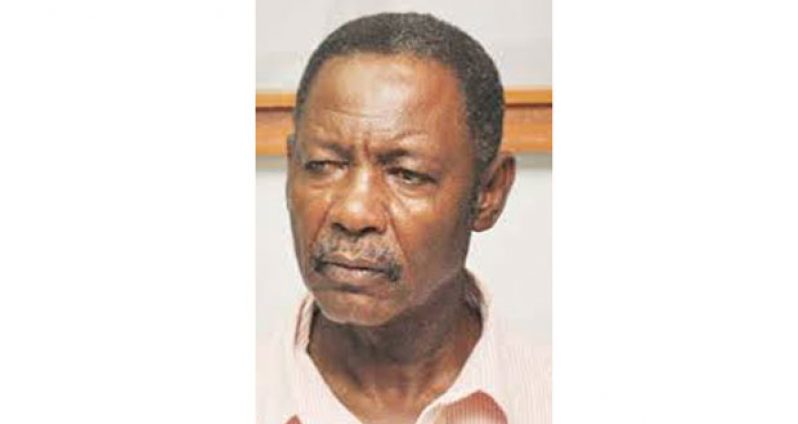By Shauna Jemmott
GENERAL-SECRETARY of the Guyana Trades Union Congress (GTUC) Lincoln Lewis told an International Labour Organisation conference on Wednesday that the labour movement here has been largely ignored by the government- a charge dismissed by Prime Minister Moses Nagamootoo.
Lewis told the conference-‘Guyana Decent Work Country Programme’ hosted by government and the ILO at Herdmanston Lodge, Georgetown, that governments taking office after late President Jagan have excluded unions from decision-making though the national constitution and the International Labour Organisation (ILO) convention provide for their inclusion.
However, Nagamootoo said: “The labour movement should not in any way be excluded from the national agenda… there is no justification whatsoever that the labour movement should in any way be excluded from the national agenda.”
He said while the main focus of the consultations, “Decent Work” is an issue fundamental to trade unions, those unions must be included at the table when certain issues are being discussed and decisions made.
“And decent work is in fact a fundamental issue to all authentic trade unions, to all authentic union leaders, and they have to be sitting together in the state and business in the tri-partied committee to hammer out those issues that affect the labour movement and workers.”
Earlier, the GTUC General-Secretary had expressed concerns that government over a decade has been ignoring the principles on which the operations of the labour force stand. He listed those principles as the Guyana Constitution, and other laws including collective labour agreements and the ILO core labour standards.
He said while the APNU+AFC Government is “espousing a developmental thrust built on the green economy,” that green economy is built on three vital pillars.
“…Green economy speaks to labour policies, sustainable development and the environment,” Lewis said, and added that the achievement of such economy from the perspective of labour can never be realised without the implementation of the ‘decent work agenda’ as a matter of principle and commitment.
As such, he said, “We can’t tell people clean the gutters without the appropriate protective clothing. We can’t tell people build the building without the appropriate protective gear.” He urged government to adopt the correct principles in its move towards progress, ignoring no one pillar, since creating a “green economy is not painting the place green and planting trees to make it green… these three pillars, we have to respect them. If you start wrong you’re going to end wrong. You gatto do what is right,” Lewis emphasised.
He expressed disgust that labour unions have been shut out, and that their rights as stakeholders are being violated. “Shutting labour out of what the constitution has so designated for us is not only a violation of our right as a stakeholder in society, but it undermines ILO convention 87 and 98, which 50 years ago the Government of Guyana ratified.
It is labour’s concern as to efforts to sideline us and deny us of what is constitutionally designated for us.”
He said while the growth of the economy depends on its human capital, which is most vital, “The government… is called on to treat all equally.”
Pointing to articles 38:147 and 149c of the Guyana constitution, he said the law has clearly outlined the role of trade unions as major stakeholders in ensuring the pursuit of an economic route which will ensure workers are engaged in production and productivity.
“This is reinforced in Article 147 that protects the fundamental rights and freedom of workers to join a trade union of choice and the employers engaging with the workers’ representative in collective bargaining… Article 149c cements our role.”
He said while the unions’ constituents represent past, present and future work force and their interests in the workplace and society at large, participating in decision- making at the national table would impact the management of issues affecting those constituents. He hailed the forum as one which provides for a major change with social partners taking steps to correct existing deficiencies by revisiting and effectively addressing the issue of ‘decent work.’ “
We must commit through collective action that will be borne out, out of respect for the role and respect of respective stakeholders, to make this event work,” Lewis urged.




.jpg)









